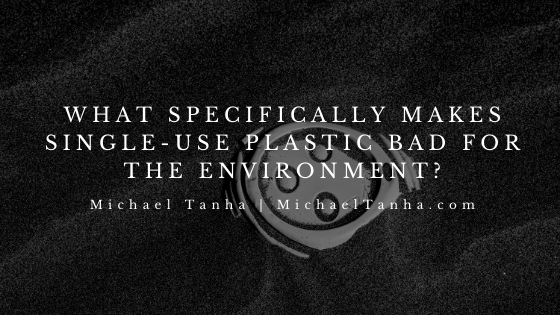Single-use plastic pollution is one of the most widespread issues in environmentalism, but what actually makes materials like plastic utensils, drink bottles, and plastic grocery bags so bad? Understanding the problem with these plastics can help encourage people to commit to a more sustainable lifestyle.
Single-Use Plastics Increase Wasteful Manufacturing
Each year, 150 million tons of single-use plastics are produced. This results in an astronomical amount of waste and pollution as factories churn out the countless cups, bottles, bags, bubble wrap, and packages made to just be used once. Most single-use items require as much water usage, energy usage, and raw materials as reusable items, but people go through hundreds of single-use items as they repeatedly throw them away and get another. This greatly increases the amount of greenhouse gas emissions and other environmental problems linked to manufacturing.
Single-Use Plastics Result in Massive Trash Piles
Plastic is one of the most harmful things to make single-use items out of because it takes thousands of years for plastic to decompose. That means that each plastic item a person throws out will end up sitting around for centuries. This has led to astronomically large landfills as nations struggle to process this massive amount of trash. Sadly, in many countries only about 60 percent of single-use plastics even get collected and placed in landfills. Instead, these plastics often get lost as litter and end up in the ocean. Eventually, they often get stuck in so-called “trashbergs” where huge patches of garbage the size of islands clump together in ever-growing garbage masses.
Plastic Contaminates Nature
Plastic may not decompose quickly, but it does degrade into smaller pieces. This means plastic slowly releases all sorts of toxic chemicals into the air, water, and soil around the plastic. Over time, plastics turn into tiny microscopic plastic fragments that have been found everywhere from the tops of mountains to the bottom of the oceans. These can accumulate inside of animals, harming and eventually killing wildlife while contaminating the meat of livestock. Research has found that the microplastics humans are exposed to through our food and beverages may be linked to hormonal imbalances, infertility, and cancer.
